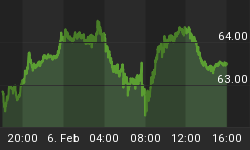This fall is certainly shaping up to be interesting, if nothing else. As weeks roll on, the markets have been reacting to an increasing number of factors, and less on fundamentals.
There's the usual stuff; election season nearing, news of Obamacare going to the Supreme Court, the troubles in Europe, et cetera. There are also several issues that are less obvious to the public. Case in point: some possible coming changes in the hedge fund landscape.
Sadly, 2011 has been a bad year for hedge funds. Many funds run by John Paulson (who made his fortune in the real estate crash), are down 30% or more. Such poor returns have led many to expect there will be sizeable redemptions from his funds toward the end of the year.
This means that Paulson will have to start liquidating positions, and many traders have anticipated his poor performance. To turn his losses into their gains, many have been rumored to be trading ahead of him, manipulating the market. This will only serve to make Paulson's returns more painful.
Of course, in talking about factors impacting global markets this fall, Greece is still the elephant in the room.
It's unfortunate, but Europe is quickly becoming a battle of egos. Recently Obama has tried lecturing on Europe's troubles, suggesting particular policy changes. His remarks have been criticized by Germans without reserve; the words 'overbearing,' 'arrogant,' 'absurd,' 'pitiful,' and 'sad' are among those that have been thrown around in describing the President's remarks.
US Treasury Secretary Timmy Geithner has also been met with hostility. Having offered his own recommendations to problems facing the Eurozone - obviously solutions that would be consistent with the philosophy of the Obama administration - have been called "stupid" by a Wolfgang Schauble.
But what does he know? He's only the German finance minister. Apparently Europeans don't feel that Obama and Geithner are qualified to lecture; not after pushing the US into a sizeable economic contraction, at the same time overseeing an explosion in US government debt that has surged past 100% of GDP. Luckily for US foreign relations, neither Geithner nor Obama refuse to let the facts get in the way of good talking points.
As a brief side note: Ireland is now rumored to be preparing to abandon the Euro as a currency, replacing it instead with its own sovereign currency. These rumors have been denied once by the Irish government, but the rumor mill continues to turn. If we see two more denials, we can safely assume the rumors are correct.
While the Germans have been more outspoken than usual in the recent weeks (responding mostly to American idiocy), the real nation of focus is Greece. We've written in previous articles that there may be more dominoes that fall after a Greek default, but there's even more to this story.
Effectively, the Greek default is the single most significant referendum on socialism in a generation. Greece may officially be a Parliamentary Republic, but in practice it looks much more like socialism. To be sure, it's a prime example of a country that has promised far more than it can deliver to its citizens, and is getting ready to pay the price as a result. It should serve as a lesson to America and other nations that have started down the same path in recent decades, and desperately need to change course sooner rather than later.
What the Greeks are quickly learning - as did the Mexicans, Russians, and Argentineans learned before them, which most Americans have long forgotten - is that government promises mean nothing. Put simply, they're far too easy to walk away from (for the government that is; they can be very costly to taxpayers). Additionally, promises mean nothing to those politicians who make them; they won't be around to pay the bill anyway.
Sadly, the lesson to be learned over the next several months by the citizens of Greece, other nations of the European Union, as well as investors and banks who own Greek debt, is one that has been learned before. One need only study history to be well warned to beware Greeks bearing gifts.















